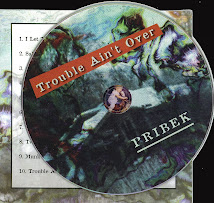Mashed and mangled articles by Pat Darnell | Feb 7, 2014 | Bryan TX
[Picture LINK]
We love to point out technology lost as the Internet absorbs systems, and we become more and more dependent on electronic transactions.
October 2015: The End of the Swipe-and-Sign Credit Card - Corporate Intelligence - WSJ: "The recent large-scale theft of credit card data from retailers including Target and Neiman Marcus brought the issue more mainstream attention, leading to a Senate Judiciary Committee hearing this week. Executives told the senators that once the country transitions to the new system — which includes credit cards embedded with a microchip containing security data — these kind of hacking attacks will be much more difficult to pull off."
'via Blog this'
Much of the rest of the world switched to chip and PIN cards years ago. Why has it taken the U.S. so much longer?
The article explains that swipe and sign systems do not require instantaneous communication with the credit card company. It can operate "offline." However, swipe and sign is not as secure as the new EMV system, or 'chip and PIN' system. Thus, enter fraudsters into the US who look for "path of least resistance." October 2015 is the date set by major credit cards for the changeover.
Also, there is mention of the Durbin Amendment applying to credit card transactions. " ... Swipe fees are paid to banks by merchants for the privilege of accepting payment cards. Merchants and card-issuing banks have long fought over these fees. Merchants lobbied heavily for a rule to limit debit card swipe fees. They accomplished this when the Durbin Amendment passeed with the Dodd-Frank financial reform legislation. This was considered a major loss for banks, who receive billions of dollars a year in income from swipe fees. (Y ikki peed ya) ... "
They are fighting over pennies, folks. Yes, the almighty Federal Reserve wants to charge back to merchants the cost of credit card fraud.
" ... The rule that the Federal Reserve issued went into effect on 1 October 2012 and allowed non-exempt card issuers to charge a one-cent fraud prevention fee to merchants in addition to another 0.7 percent for fraud prevention already included in the interchange fee. (ibid.)Merchants fought back:
" ... The Merchant Payments Coalition (MPC) argued that this rule was unfair as the Durbin Amendment required the Federal Reserve to ensure that banks take effective steps against fraud and determine how much of the cost banks should bear themselves. The MPC said that banks should actually have to reduce fraud before receiving more funds. The MPC pointed out that the common practice of having customers merely signing for debit card purchases processed through the Visa and MasterCard payment networks instead of requiring a PIN greatly increases fraud. (ibid.) ..."Thus, we will have the 'chip and PIN' credit cards next year.
*
*
*
BUT WAIT ... ! Banks say: "EMV is infallible." So when your card is jacked with its chip and PIN technology, and used to buy cruise tickets and poker hands, you don't get your lost money back from the banks. You are up a creek without a paddle.
What does "EMV" stand for? It is an acronym for "Europay, MasterCard, Visa." EMV has been used in almost all countries but USA for decades now. And it is a failure, in that in other countries cards have been jacked and used even though the banks claim EMV is infallible.
So, maybe it is time to go back to putting your hard-fought, after-tax, cash into your mattresses. Cash basis for all your transactions could mean difference in surviving all the Tech Coroners coming your way.
________________________Reference
http://blogs.wsj.com/corporate-intelligence/2014/02/06/october-2015-the-end-of-the-swipe-and-sign-credit-card/
http://en.wikipedia.org/wiki/Durbin_Amendment
- ^ a b c Ylan Q. MuI (21 August 2013). "Fed slated to outline plans for cap on debit card 'swipe' fees". Washington Post







No comments:
Post a Comment